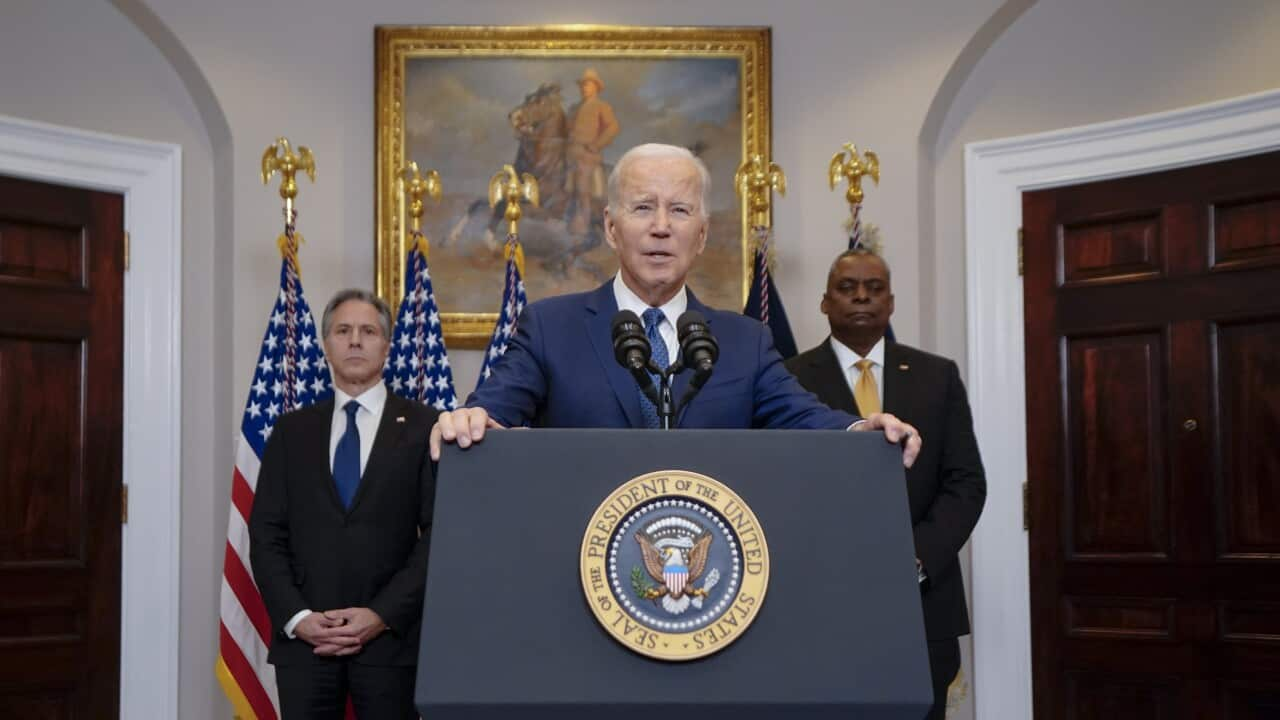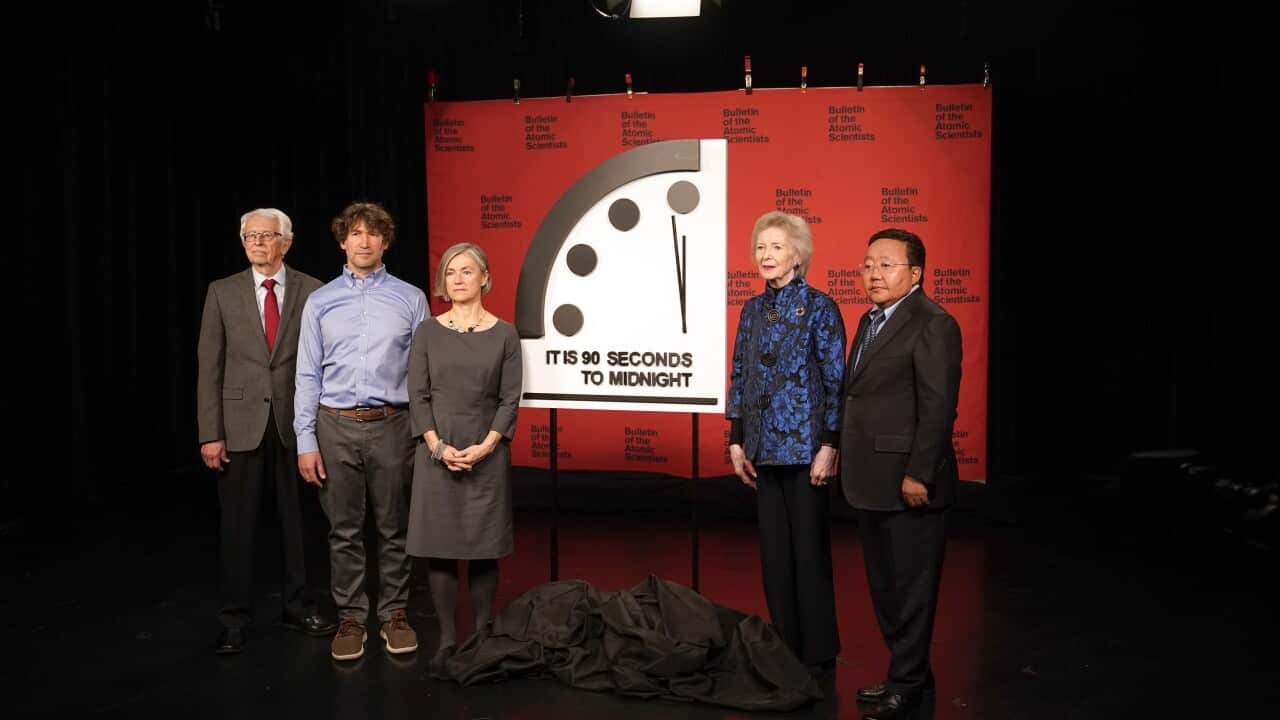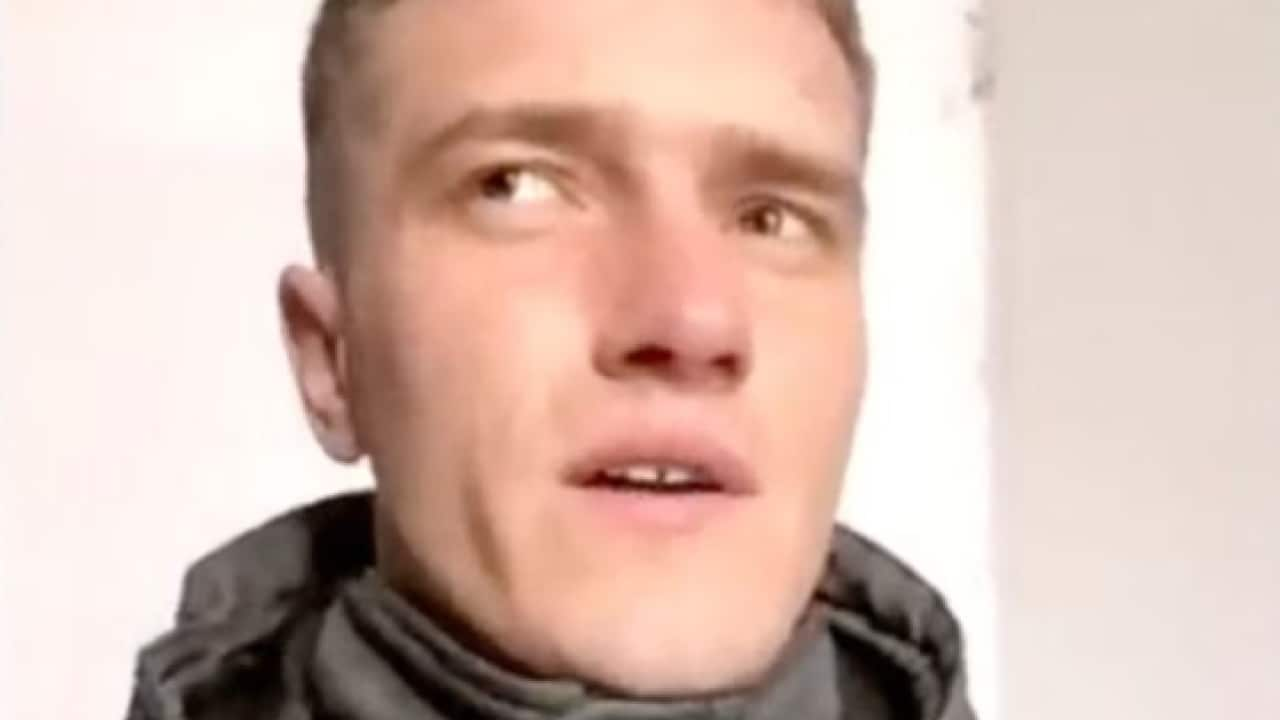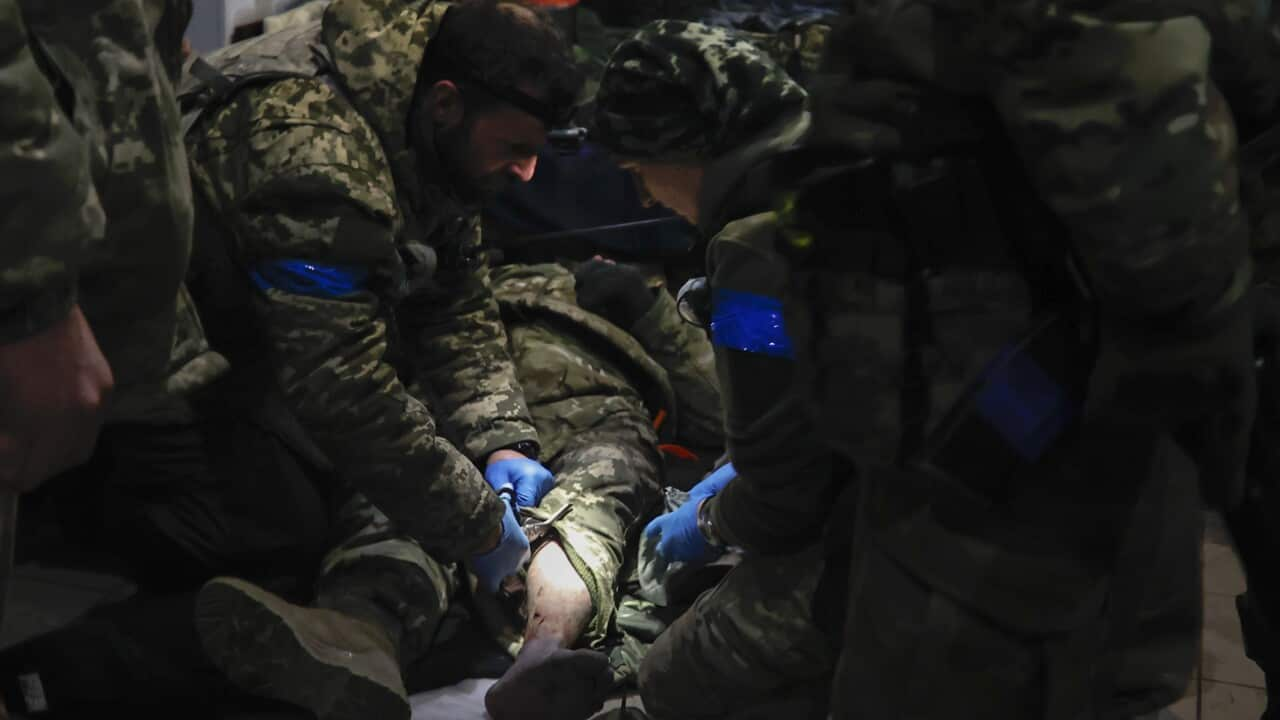The United States said on Wednesday it would supply Ukraine with 31 of its most advanced battle tanks after Germany broke a taboo with a similar announcement, moves hailed by Kyiv as a potential turning point in its battle to repel Russia's invasion.
The US decision to deliver M1 Abrams tanks helped break a diplomatic logjam with Germany over how to best help Kyiv in its war with Russia, which hours earlier had condemned Berlin's decision to provide Leopard 2 tanks as a dangerous provocation.
Washington had been wary of the idea of deploying the difficult-to-maintain Abrams but had to change tack to persuade Germany to send its more easily operated Leopard 2 tanks — the workhorse of NATO armies across Europe — to Ukraine.
President Joe Biden announced the US decision in remarks at the White House, saying the tanks were needed to help Ukrainians "improve their ability to manoeuvre in open terrain."
Kyiv has been calling for months for Western main battle tanks that would give its forces greater firepower, protection and mobility to break through long-static front lines and potentially reclaim occupied territory in the east and south.
Senior Biden administration officials said it would take months for the Abrams to be delivered and described the move as providing for Ukraine's long-term defence.
"There is no offensive threat to Russia (itself)," Mr Biden said.
Moscow increasingly casts the war as a perilous face-off between Russia and the US-led NATO alliance.
'Path to victory'
The White House said Mr Biden spoke on Wednesday with German Chancellor Olaf Scholz, French President Emmanuel Macron, and prime ministers Giorgia Meloni of Italy and Rishi Sunak of Britain on their nations' close cooperation in support of Kyiv.
Germany said it would send an initial company of 14 of its Leopard 2 tanks from its own stocks and also approve shipments by allied European states.
The eventual aim would be to supply Ukraine with two battalions of Leopards, typically comprising three or four companies each, the first to arrive within three or four months.
"Germany will always be at the forefront when it comes to supporting Ukraine," Mr Scholz told the German parliament, to applause.
Ukrainian President Volodymyr Zelenskyy hailed Washington's decision on the Abrams tanks as an "important step on the path to victory" while also thanking Mr Scholz for the Leopards.
He tweeted: "Today the free world is united as never before for a common goal", which he described as the liberation of Ukraine.
Russia reacted with fury to Germany's decision, saying Berlin was abandoning its "historical responsibility to Russia" arising from Nazi crimes in World War Two when Hitler's forces invaded the Soviet Union.

US soldiers stand with an M1 Abrams tank in a wooded area during a multinational exercise. The US has pledged to deliver 31 of its most advanced M1 tanks to Ukraine. Source: Getty / Nicolas Armer
Moscow says supplies of modern offensive weaponry to Ukraine will only postpone what it says will be its inevitable victory.
Anatoly Antonov, Russia's ambassador in Washington, said deliveries of US tanks would be "another blatant provocation".
'Soledar is gone'
Meanwhile, Ukraine conceded Wednesday its troops had pulled back this month from Soledar, a town in the eastern Donetsk region that saw some of the fiercest battles of Russia's nearly year-long invasion.
"For two or three days, we lost positions, but now we are working to push back to what we had before," said Igor, part of the aerial reconnaissance unit involved in the attack.
Compared to the rest of the industrial Donetsk region, Soledar has seen some of "the worst fighting" over recent days.
Russia's notorious mercenary Wagner group claimed to have spearheaded the offensive for Soledar, claiming its capture on 11 January.
Moscow's capture of Soledar was its first battlefield victory in months.
"Soledar is gone," said 144th territorial defence battalion deputy commander Volodymyr Leonov, 10 kilometres away, where servicemen recouped away from the front.
And the grinding fight to prevent Russian forces from making even further gains is taking a toll, Mr Leonov added. He said 27 servicemen had signed a letter saying they will no longer go to combat positions.
This comes as Mr Zelenskyy on Wednesday signed legislation toughening punishments for disobedience or desertion from the armed forces.












